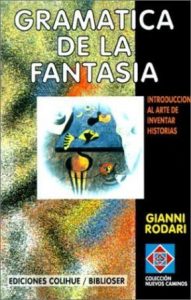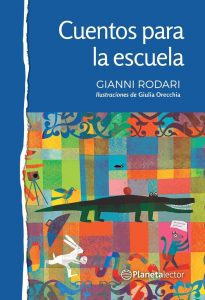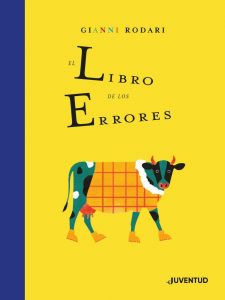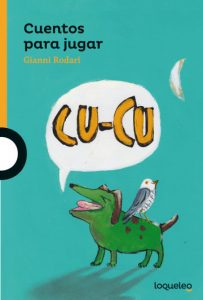By Adriana Fernández
¿Is it worthwhile for a child to learn by crying what he can learn by laughing?
Gianni Rodari, Il libro degli errori [The Book of Errors]
October 23, 2020 marked the 100th anniversary of the birth of Gianni Rodari (1920-1980), the Piedmontese writer, teacher and children’s author who set out to investigate the creative logic of children’s fiction.

Rodari said that when he went to schools – something he did throughout his life – children would ask him “how did you come up with that story?” Those of us who are surrounded by young readers, by writing and publishing know that this question is oft repeated. Reading Rodari’s The Grammar of Fantasy, it is evident that it is written by someone who listened to those readers and who went through the process of creating fiction as a journey in reverse. Rodari’s book about the paths that underlie the creative process seems to be produced by someone who has found a wise and intelligent GPS, one that can understand all the alternative paths.
One cannot think of offering writing workshops or approaching the didactics of fictional writing for children without having considered Rodari; he is an indispensable stop on the journey to learning.
“The Grammar of Fantasy (…) is neither a theory of the imagination of children nor a recipe book. Instead, it is a proposal, like others that already exist for our consideration, that insists on the need to enrich the environment of the developing child (home, school, etc.) with stimuli.”

Going through some of Gianni Rodari’s fiction titles, such as Cuentos para la escuela [Tales for School] (Spanish edition, Planeta Lector, 2017), remind us of this author who understood childhood well, who grasped that space-time in which the imagination not only works differently but also allows us to read in a very specific way.
Cuentos para la escuela presents mere snippets, quick stories, with the rhythm of laughter, and which surprise us like a prank at the moment of its discovery.

In Il libro degli errori, Rodari compiles a series of errors of all kinds (grammatical, spelling and moral, as he likes to say) and writes them in the form of poems.

Cuentos para jugar is a volume of twenty stories with different possible endings, a book in which Rodari once again invites readers to enter freely and confidently into the universe of fiction.


Adriana Fernández (Buenos Aires, 1970) graduated from the Instituto Nacional del Profesorado “Joaquín V. González” as a teacher in Spanish, Literature and Latin. She has taught at the Universidad Nacional de General Sarmiento (UNGS), the Universidad Nacional de Lomas de Zamora and the Universidad de Buenos Aires. She is the publishing manager of Grupo Planeta in Argentina.